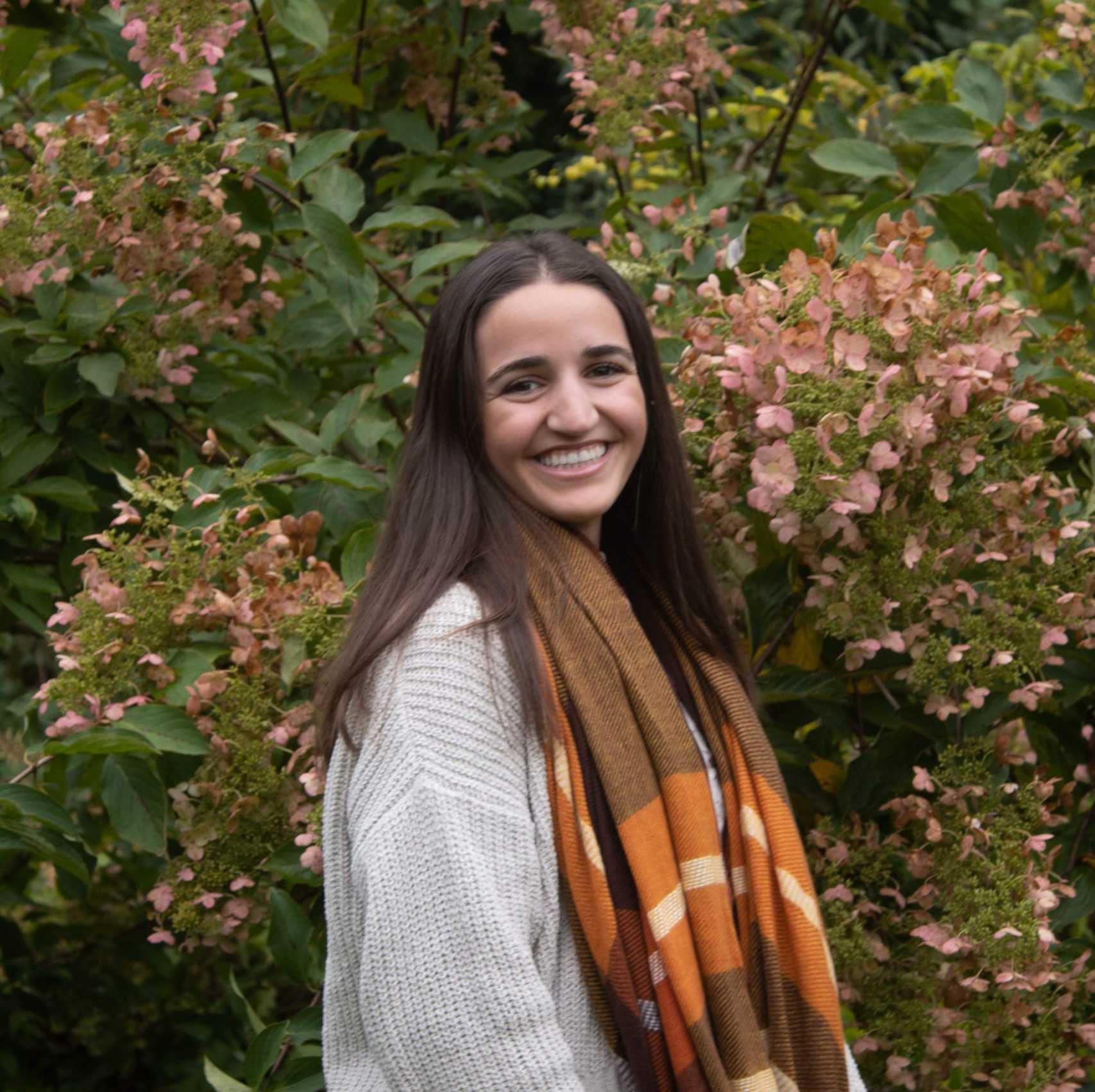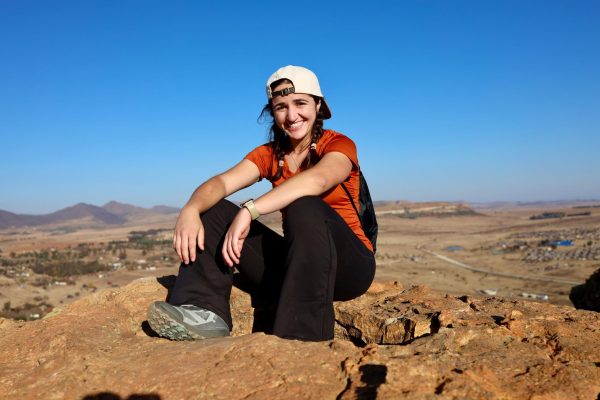I walked into Wolfington Hall one afternoon just before Thanksgiving break last semester and found Nancy Horowitz-Patton, Campus Ministry administrative assistant, sitting at the front desk.
“I’m trying to find God,” I told her. “I was wondering if you knew where I should look?”
Horowitz-Patton looked at me, smiled, and said, “Well, you’ve come to the right place.”
I consider myself to be a religious mutt. My mom is Roman Catholic and my dad is Greek Orthodox, so I recieved my communion twice. When I was an infant, I received what the Greek Orthodox church calls the Sacrament of Chrismation (along with the sacraments of Baptism and Holy Communion), and I was confirmed again in the Catholic Church when I was eight. You’d expect all these sacraments would make me extra full of God, but by the time I got to college, I was religiously confused and empty.
I have always considered myself to be a faithful person, but all the rules and restrictions of Catholicism intimidated me. I thought that in order for God to be in my life, I had to confess everything I did last weekend and save sex for marriage.
“The Catholic Church can often be unrelatable, especially to folks our age,” said Thomas Betterly ’24, sacristan and peer minister. “Your faith becomes a list of things you’re not allowed to do, and all of these rules are often seen as really restrictive and not appealing.”
According to Reggie McNeal, author of “The Present Future: Six Tough Questions for the Church,” 90% of young people active in high school church programs leave the church by their sophomore year of college. McNeal’s findings support a number of other recent books and studies about college students losing touch with their faith, especially as classes and extracurriculars take a higher priority than their spirituality.
So, for two weeks, I decided to buck the statistics and make my own faith a priority, with a realistic focus on strengthening my relationship with God rather than being a perfect Catholic.
I made a plan based on Aurora Griffin’s book, “How I stayed Catholic at Harvard: 40 Tips for Faithful College Students.” I chose to focus on four of Griffin’s tips: attend a traditional Mass, pray every day, find mentors and go on a retreat.
I started by attending my first mass in a long time at the Chapel of Saint Joseph, where I tried to take in every word and every movement. The homily, the speech the priest gives after the readings, was basically about going forth and proclaiming your love for God.
Okay, I thought to myself. But how do I proclaim a love for God when I am still trying to meet him?
Mass got me nowhere, and I discovered that it was not the place where I was going to find God. I thought praying would be more effective anyhow since it is direct contact with the man himself. Or so I thought.
On my knees? No. Sitting down? No. Criss-cross applesauce? Okay, that could work. Do I close my eyes? What do I do with my hands? Do I just talk about my day?
I realized that I had no idea how to pray, so I looked up all different methods, from reading a passage from the Bible to focusing my prayers on an object like a cross or candle. I found just closing my eyes and talking in my head worked best. It felt the most natural to me, but I still never really felt God’s presence.
I asked others where they feel God. Liam Majewski ’22, a Philadelphia Service Immersion Program leader, said he feels God when he is alone and outside.
“It feels peaceful,” Majewski said. “It feels calming and present to be connected with God and to be aware of his presence through everything.”
Marisa Vance ’23, an avid Catholic Mass attendee, said she feels God any time she is going through a tough time.
“I would say it’s rewarding in the sense that you always know someone’s there,” Vance said.
Maggie Koch ’22, Winter Immersion Program peer minister, said she feels God in community and being around people that understand her.
“Finding God is always a process,” Koch said. “I don’t know if I’ve completely found him, but the Winter Immersion Program is definitely a place that fosters my faith. It’s a place where I can explore, ask my questions.”
I wanted to feel what all these students were feeling. I wanted to know what God’s love felt like. So, I decided it was time to dig deeper and find a mentor. What perfect timing for Campus Ministry’s PAUSE retreat.
PAUSE, or the Busy Person’s Retreat, is for students who don’t have time for a full off-campus weekend engulfed in prayer and religion. Instead, it is a three-day retreat during the week that requires a half hour of prayer time every day and a half hour of mentorship with a priest in Campus Ministry.
I was paired up with Campus Minister Bill Rickle, S.J., and was assigned a prayer about “God molding me out of clay and breathing life into me” from Genesis 2:7. On the first day of the retreat, I did the exercise and told Rickle that I was frustrated because I couldn’t see God’s face, only his hands, as he molded me out of clay.
“Father Rickle, I feel like I’m trying to put a Mr. Potato Head together to make God’s face,” I said. “I tried testing a different nose, eyes and mouth and hoping something would match.”
Rickle let out a hearty laugh and said, “Anna, the reason you aren’t seeing the face of God is because his face could be anyone in your life who molded you into the person you are today.”
Something clicked. I felt so dumb. I had been trying so hard to believe and to see what God looks like and who he is, but I never thought about him being within people in my life. I tried the clay molding prayer again, but this time I thought about all the people in my life who had a part in molding me into the woman I am today.
I closed my eyes and began to pray. I saw a large brick of rusty brown clay with my name thinly etched on the front. I saw my mom first. She walked over to the brick and began to pat the clay down. She worked for a moment and walked away. My grandma came next and continued to form the clay. Then, she walked away.
More and more people in my life came by to form my blob of clay: my dad, my brothers, my grandpa, my oldest friends, my elementary school teachers, my cousins I haven’t seen in years. Slowly, a human figure formed from the clay. As more people in my life passed by, more details became clear, until I was staring at a reflection of myself.
Aside from being extremely trippy, the exercise felt powerful. I could finally say that I felt God, which is what I realized I had set out to do from the start.
I would not say that I know the meaning of life now or have truly found God like I intended, but what I experienced is a feeling I know I will never forget.
















































